May is the last month of internship activities in the division for One Health Laboratory Network (OHLN) interns. A lot of activities have been carried out during this last month, starting from making CRDF factsheets, creating articles, uploading Instagram social media content like the previous months, and this month we also did a lot of institutional visits to INDOHUN implementing partners, namely FAO ECTAD, IFRC, IDDS, and PSSP IPB.
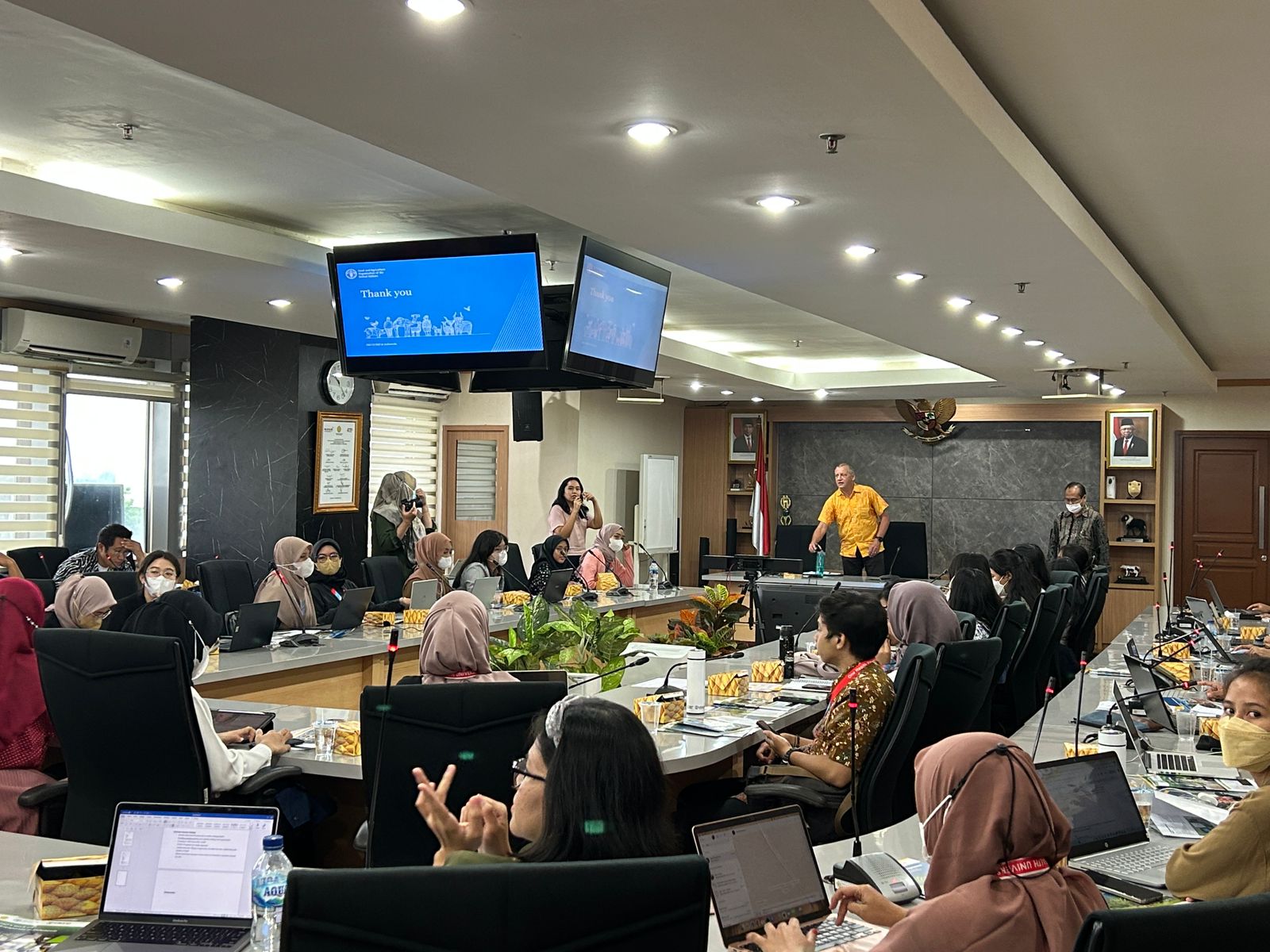
FAO Presentation Session
The first institutional visit we conducted this month on May 11, 2023, was to the FAO ECTAD office located in Building C, Ministry of Agriculture, Ragunan Pasar Minggu, South Jakarta. This institutional visit to FAO ECTAD aims to learn about FAO ECTAD’s programs and activities in relation to One Health in Indonesia. FAO Emergency Center for Transboundary Animal Diseases (ECTAD) is a specialized unit within FAO responsible for planning and implementing emergency programs and animal health development in more than 37 countries to prevent and mitigate the impact of animal diseases with a One Health approach. FAO ECTAD has collaborated with the Indonesian government since 2006 during the avian influenza pandemic. The main tasks and roles of FAO ECTAD are 1) Detect by improving integrated multi-sectoral surveillance systems, laboratory and epidemiological capacity, and risk analysis for prevention, detection and response to zoonoses and new infectious diseases in Indonesia, 2) Prevent by working together to control avian influenza along the poultry market chain, 3) Respond by addressing zoonoses and new infectious diseases in animals, humans, and wildlife through One Health, 4) Work together to control antimicrobial resistance, 5) Conduct multi-sectoral collaboration, 6) Conduct communication and public outreach.
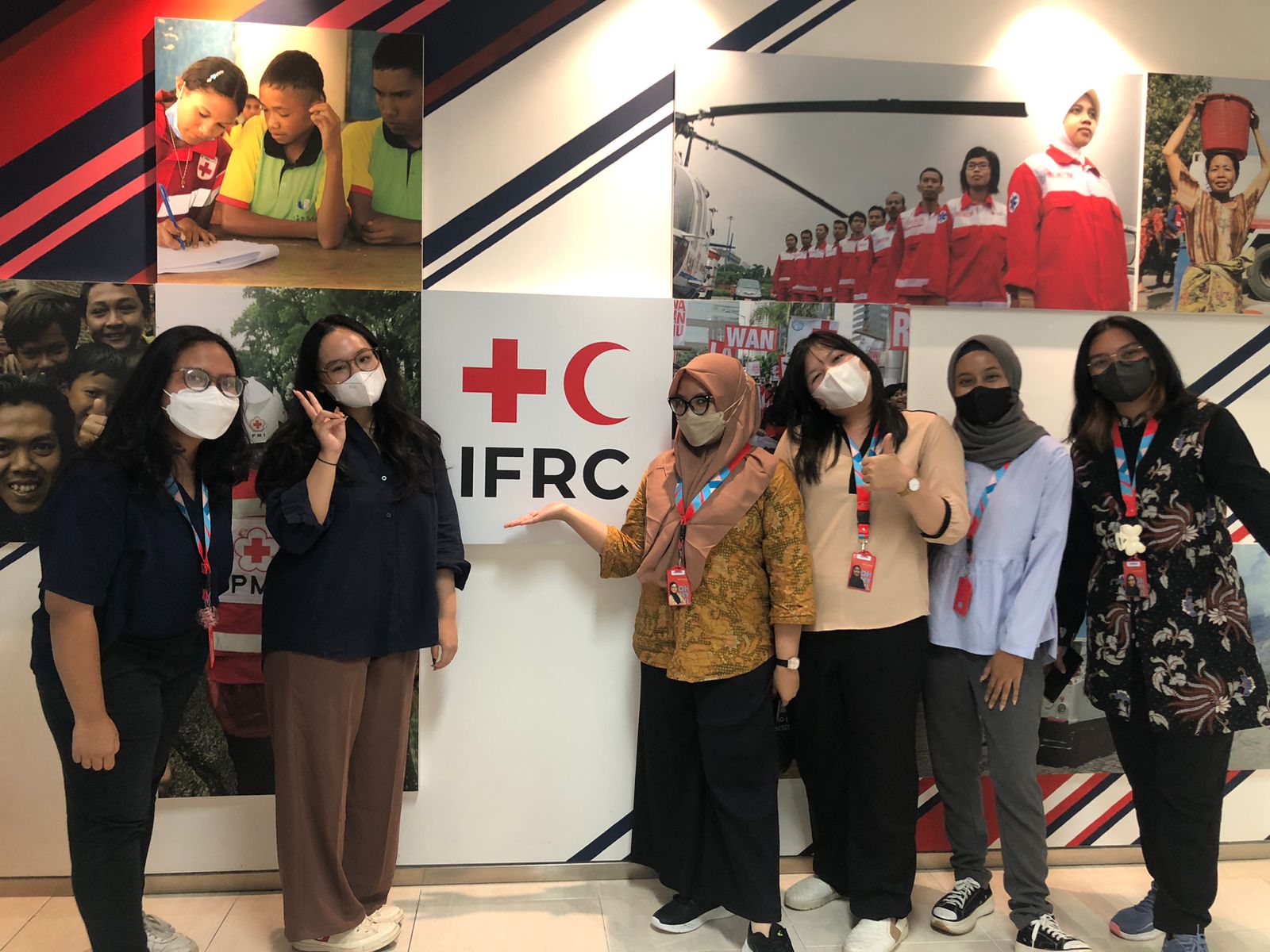
Office Tour IFRC
Furthermore, on May 23, 2023, we conducted an institutional visit to the IFRC (International Federation of Red Cross and Red Crescent Societies) located at Wisma PMI, Kebayoran Baru, South Jakarta. This institutional visit to IFRC aims to learn about the programs and activities carried out by IFRC in relation to One Health in Indonesia. IFRC is a humanitarian network organization that mobilized worldwide, including in Indonesia. The role of the IFRC is to foster, cooperate with and assist national societies in developing their capacity, as well as represent, listen to, and convey the aspirations of national societies at international conferences. In this case, the national society in Indonesia is PMI (Indonesian Red Cross). PMI is one of 192 national societies in the world. Therefore, PMI is not only a national institution, but also a global movement. Volunteerism in Indonesia is regulated by UU No. 1 of 2018 and PP No. 7 of 2019. In performing its duties, PMI collaborates with the Ministry of Health and the Ministry of Agriculture. Currently, 1 central headquarters, 34 provincial offices, and 478 district headquarters are spread throughout Indonesia.
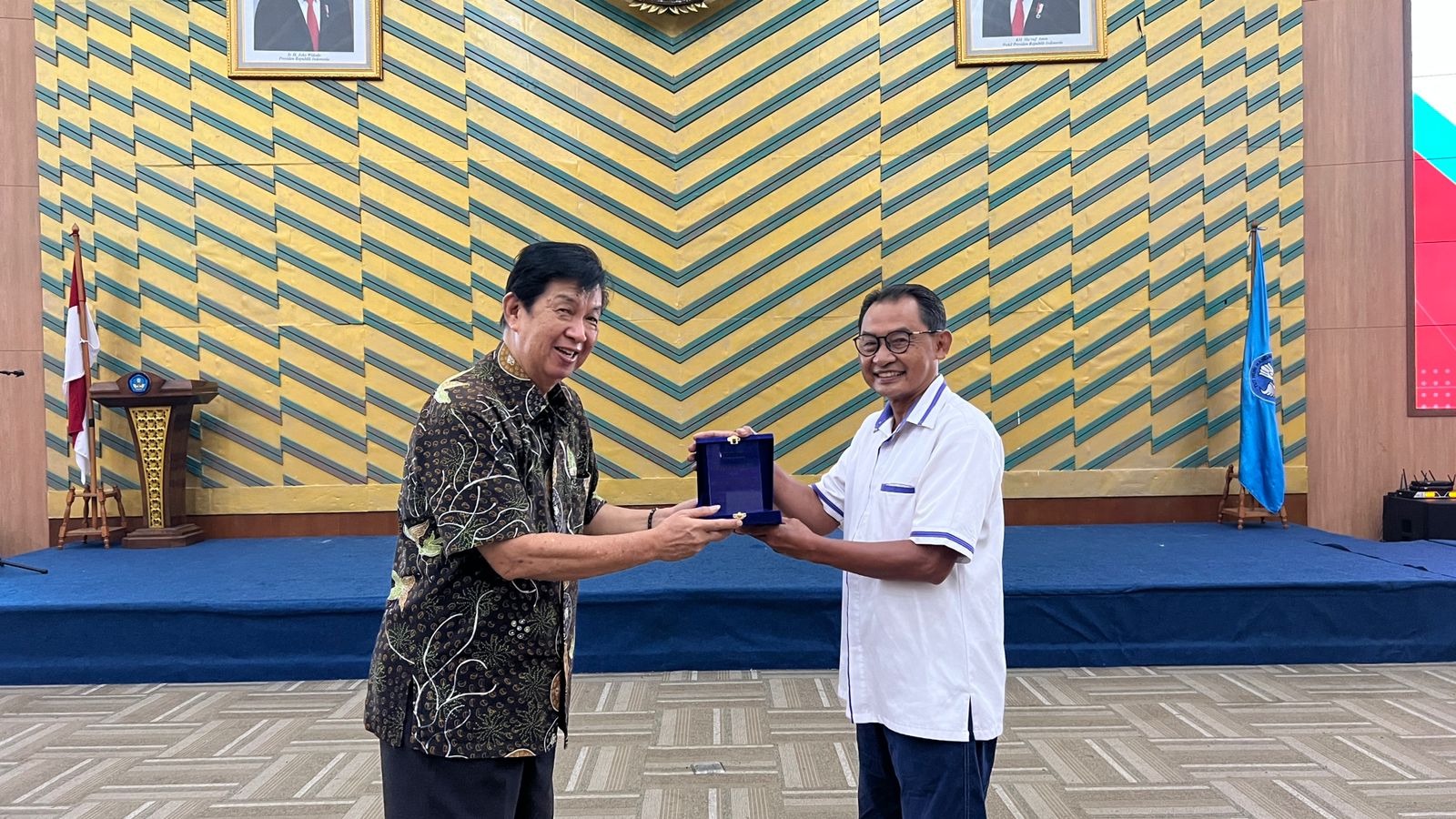
Plaque Handover to IDDS Representative
Then, on May 25, 2023, we conducted an institutional visit to IDDS (Infectious Disease Detection and Surveillance). This activity was carried out at the Auditorium of the Ministry of Education, Culture, Research and Technology Building. This IDDS institutional visit aims to learn about the programs and activities in IDDS in relation to One Health in Indonesia. IDDS is a consortium of a global project funded by USAID and led by ICF. IDDS has an implementing partner in Indonesia, FHI 360. IDDS supports Indonesia’s efforts to strengthen a sustainable One Health system by improving surveillance and diagnostic networks to detect priority pathogens. In this case, IDDS will focus more on detection and surveillance. In performing its duties, IDDS collaborates with several international partners, namely WHO, FAO, IFRC, One Health Workforce, AIHSP, JICA, and other partners, as well as 11 national partners, namely the coordinating ministry (Coordinating Ministry for Human Development and Culture), technical ministries (Ministry of Health, Ministry of Agriculture, Ministry of Environment and Forestry), supporting Ministry (Ministry of Home Affairs), Ministry of Communication and Information Technology, Cabinet Secretariat, National Research and Innovation Agency, The National Agency for Disaster Countermeasure, experts/universities, and local governments. The main activities in IDDS are 1) One Health Laboratory Network, which is strengthening the network between human health labs, veterinary labs, and university labs, 2) Four Way Linking, information sharing between epidemiology, laboratory, human health, and animal health, 3) Integrated Surveillance, establishing integrated surveillance, 4) SIZE (Zoonosis & EID Information System) Development & Operationalization. IDDS supports establishing cross-sectoral coordination in the zoonosis prevention, detection, and control working group.
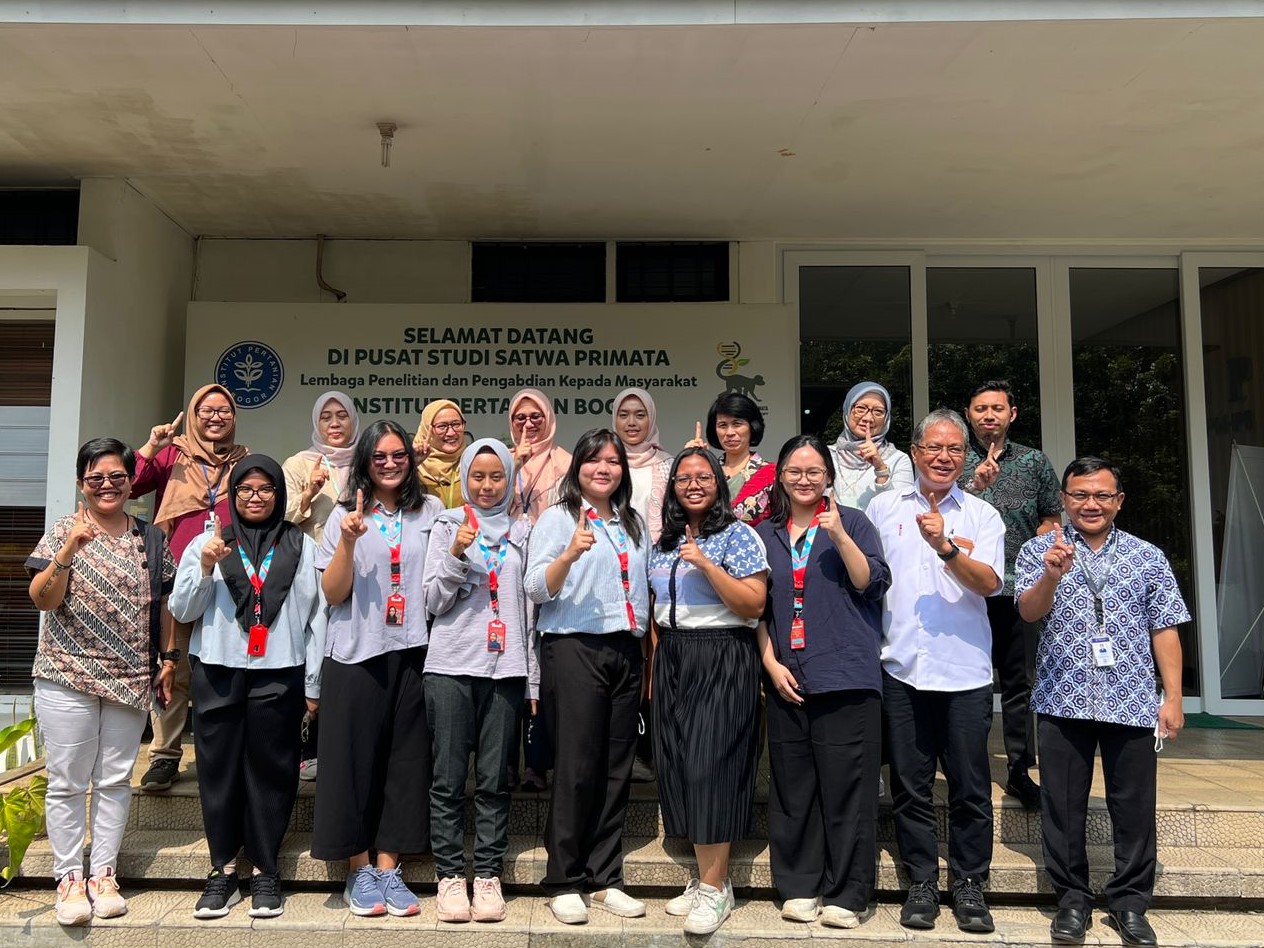
Visitation to PSSP IPB
Finally, on May 30, 2023, we visited PSSP (Primate Animal Study Center) at IPB, Bogor. This visit aims to learn about the work programs and observe the laboratories and facilities that play a role in strengthening laboratory capacity at the Primate Animal Study Center LPPM Bogor Agricultural University. PSSP was established on July 28, 1990, and is Indonesia’s oldest primate study center. PSSP was established under LPPM IPB and has been accredited by AAALAC (Association For Assessment and Accreditation of Laboratory Animal Care) International since 2006. There are several laboratories in PSSP IPB, namely 1) Microbiology and immunology laboratory for in vitro testing, cell development, and research on bacteria, 2) Pathology laboratory for blood research, primate and non-primate animal pathology, 3) Biotechnology laboratory for molecular analysis with conventional PCR machine, 4) Conservation laboratory for developing tarsiers and slow lorises, 5) Lodaya animal research for recombinant vaccine development. To minimize the impact of biological, physical, chemical, radiation, and ergonomic hazards that may occur in the laboratories, PSSP carries out mechanical controls in the form of biosafety level 2, installing various kinds of labels, creating restricted access using identification or fingerprints, and carrying out administrative controls by designing safe work practices. To date, PSSP IPB has received certification from IFBA, funding from CRDF Global, experience as a Covid-19 sample inspection site, and experience providing ISO 35001 assistance. By conducting institutional visits to various implementing partners, we realized that all institutions have roles and that 4C (coordination, collaboration, cooperation, and communication) is essential in implementing One Health.
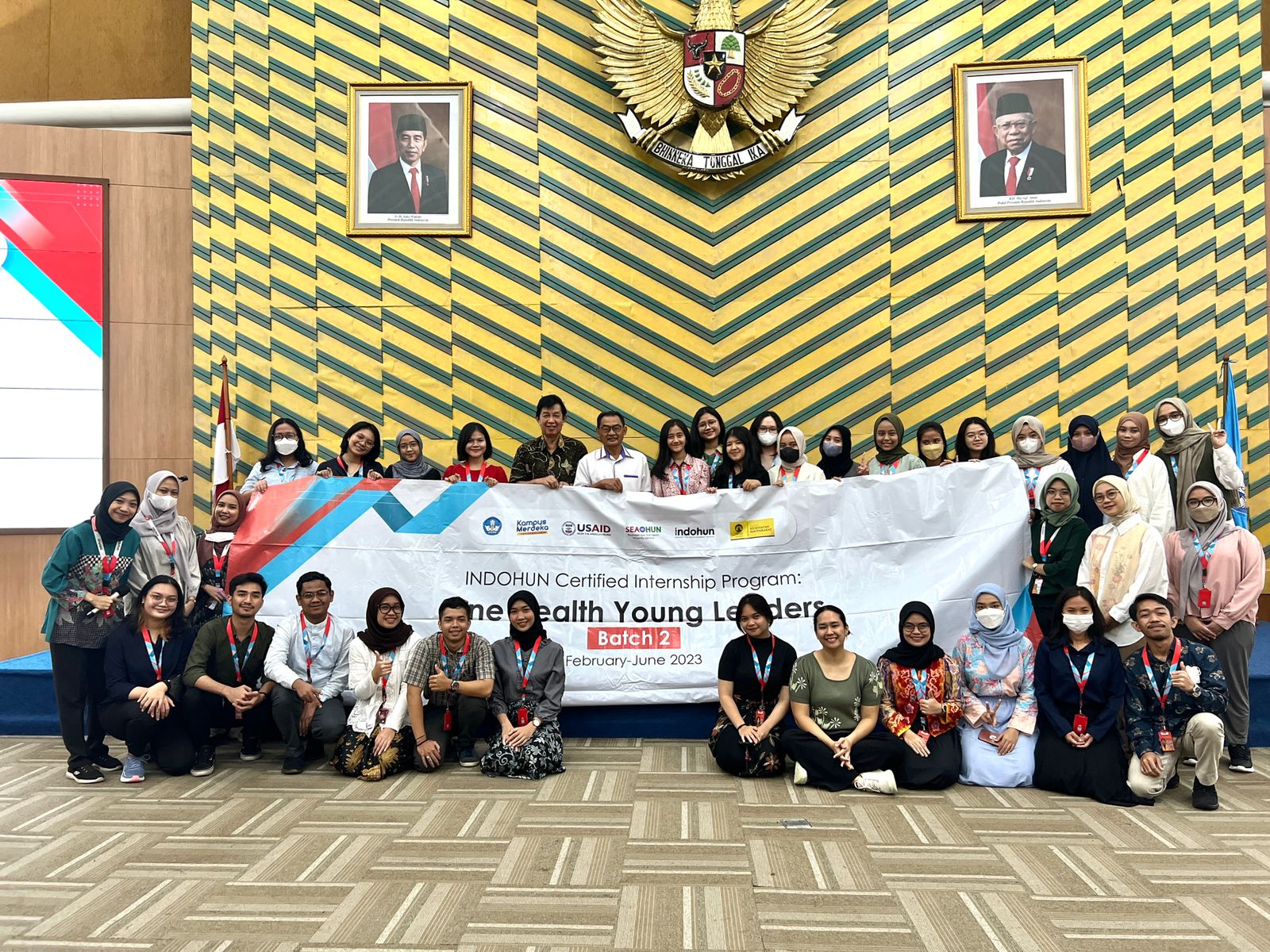

Leave a Reply